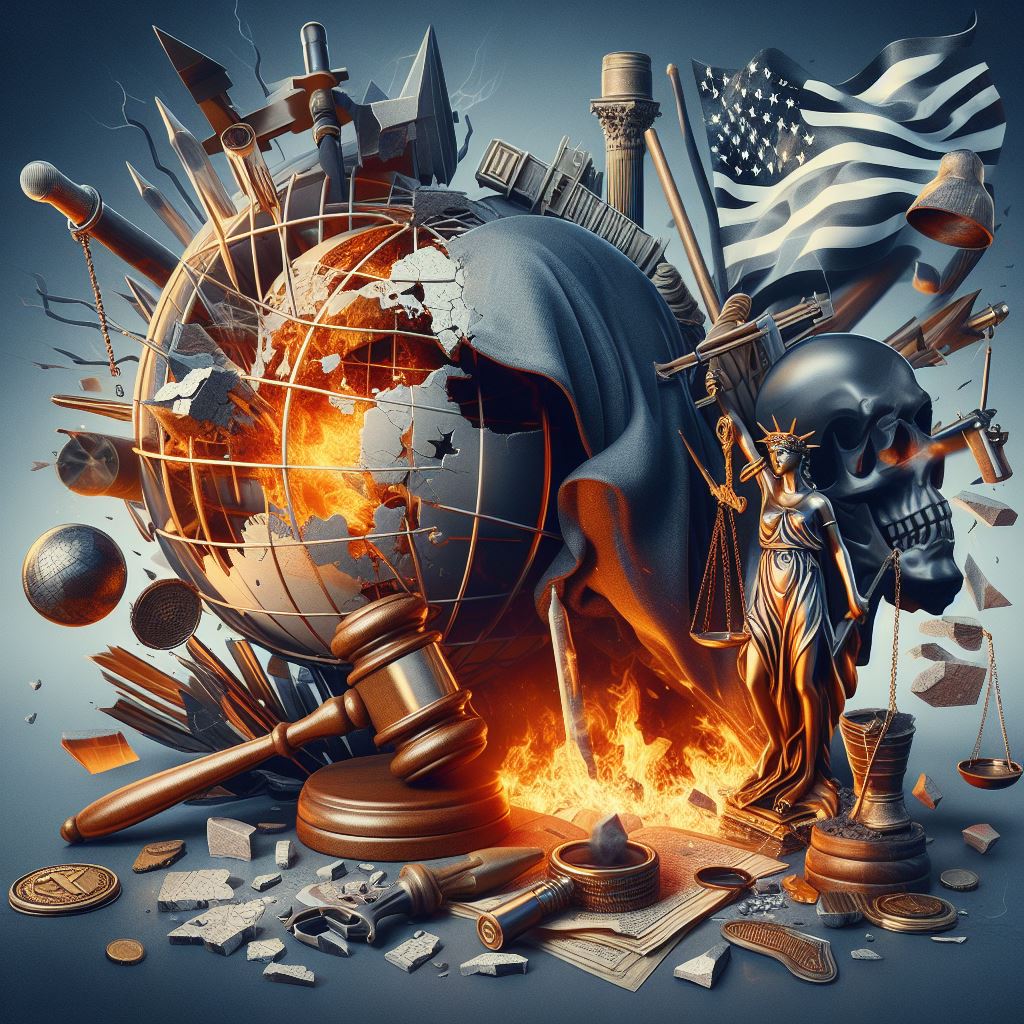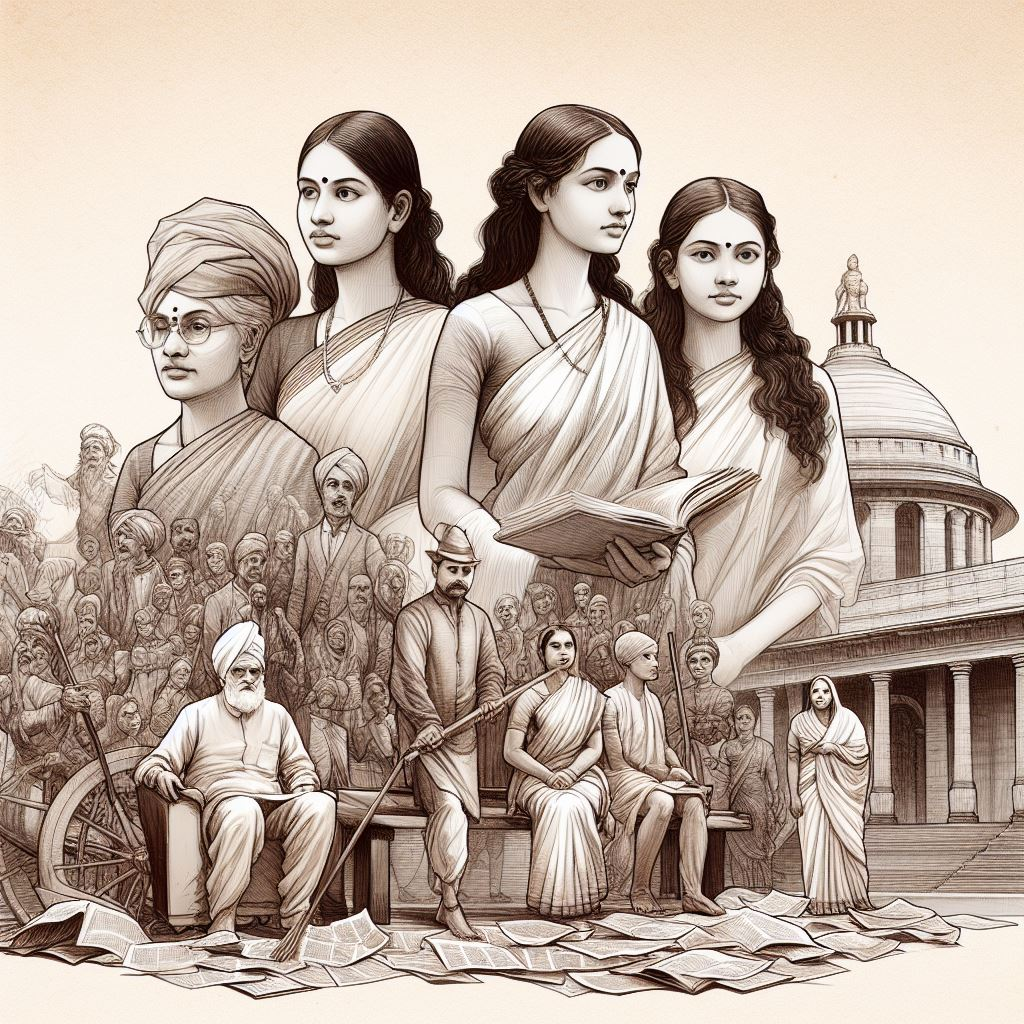Parth Raman & Anishka Sharma
The idea of International Laws was the outcome of the various consequences that took place in past. International laws were established to conceptualise a framework between the states on issues like domains, including war, diplomacy, trade, and human rights. The Father of International Laws known to be Hugo Grotius has mentioned one very important aspect in his book, On the Law of War and Peace; “we do not talk of the justice of horses or lions, but we will be irreverent if we will not take care of the sovereignty”.
Sovereign Equality
The term sovereign equality means “the idea that all sovereign states are formally equal”, eventually it’s a fundamental tenet of International Law. Article 2:1 of the United Nations Charter states that; “The organisation is based on the principle of the sovereign equality of all its members”. Relating to the Moscow Conference of 1943 which was one of the initial meetings for the formation of the United Nations clearly emphasised the universal concept of sovereign equality and was recognised in the Declaration of the Four Nations.

Earlier, the Security Council did not have any proper definition or explanation of sovereign equality. Still, at that time Russia gave relevance to the term at the San Francisco Conference of 1945. When Ukraine became part of the Soviet Union it was known as the Ukrainian Soviet Socialist Republic. But on July 16, 1990, the legislature of the Ukrainian S.S.R. declared itself sovereign. So, our whole analysis will be the witness to Russia’s invasion of Ukraine.
Right now, as we can observe Russia waged a war against Ukraine a few days back. Various world leaders had their eyes on this relationship in past years when Ukraine started reacting to the aggressive actions of Russia over their territories. As of now, Russia has violated certain rights of Ukraine such as; sovereign equality and rights assured under Article 55 of the United Nations Charter. We know a very scientific equation of Newton Third’s Law which quotes; “every action has an opposite and equal reaction”, so Ukraine has performed its part by countering them and ensuring their Right of Private Defence under Article 50 of the United Nations Charter.
Violating sovereign equality of any nation is directly a violation of The Peace of Westphalia which led down the concept of territorial sovereignty i.e. non-interference in the matter within the mentioned territory of the specific state. Consequently, at the inception of this issue, various political thinkers have tried to establish the rule of Article 78 of the United Nations Charter which says about the trusteeship system under which the country has respect for another country with the principle of sovereign equality; but this theory is not very much relevant in the case of Russia and Ukraine relations because the trusteeship system is mostly colonial and practical in European State.
Sovereign Aggression versus Sovereign Equality
In both the terms which are ‘sovereign aggression’ and ‘sovereign equality’ the first word which is ‘sovereign’ is common but the second word is two different poles of the Globe Axis. The aggression of any type, whether by the extent or within the sovereign domain was never encouraged. In past as well, we have observed global sanctions have been imposed on the country which had aggression toward each other. In International Laws, there is no unified system of sanctions (According to W. M. Reisman, ‘Sanctions and Enforcement’, in The Future of the International Legal Order).
Sanctions may be imposed by the Security Council within the United Nations Framework on such assessment of a threat to world peace, violation of peace, or act of aggression. Sanctions can be economic, as in the case of Rhodesia in 1966, military, as in the Korean War in 1950, or both, as in the case of Iraq in 1990. So, the act of Russia is a transcending of the Sovereign Aggression and its clear violation of Ukraine’s Sovereign Equality.
The Undemocratic Stand of Geopolitics
In today’s world where diplomacy is considered as a soul of governance then various acts of the paragon of justice and the light bearer of democracy have shown various arts of barbaric governance and foreign policies without any doubt its USA and allies. Currently, the United States of America is approaching elections this year and the populist candidature of President is Donald Trump in the public. In his recent address in Ohio, he mentioned that; “after the election and when he will be in power, the very first step will be to stop the Russia-Ukraine war”. It is not a scenario in the whole conflict, that the monetary and arms supplied to Ukraine are provided by the United States of America? We have to analyse that the progressive support of the United States of America was made towards Ukraine to establish a true essence of democracy which was made prominent by them over the Truman Doctrine way back in the1947s.
The world has seen the stance of the United States of America in a matter of recognition of Taiwan. Earlier the USA was a close ally of Taiwan but in aspiration of political stability in the Asia region didn’t take a minute for the thinkers and policy framers of the USA to shift its allies for the production sector in China by surpassing the recognition of Taiwan. The world cannot forget the historical speech of Henry Kissinger addressed that, the USA believes in one China policy which means China is one and there are no conflicted territories that the USA recognises.
Conclusion
Every country irrespective of its territory, strength in population or any factor is free to ensure its sovereign equality. The international community has long yearned for a liberal, rules-based international order. It promises a more secure and equitable global system based on sovereign equality and group security. This piece of research is driven by numerous research in the field of foreign policy. It has been analysed for a long through the opinion of Chanakya and Prince Machiavelli that, the fight in which you cannot survive alone without any external support should end with surrendering in the favourable phase.
The views and opinions expressed by the authors in this article are their personal opinions and do not represent the views of PureSociology. You can contact the author/s at [email protected]. The details of the authors are:
Mr. Parth Raman is a Research Trainee in the Lok Sabha Office; and Ms. Anishka Sharma is a Law Graduate.



This commentary emphasizes the significance of sovereign equality in to promote stability in contemporary global society.